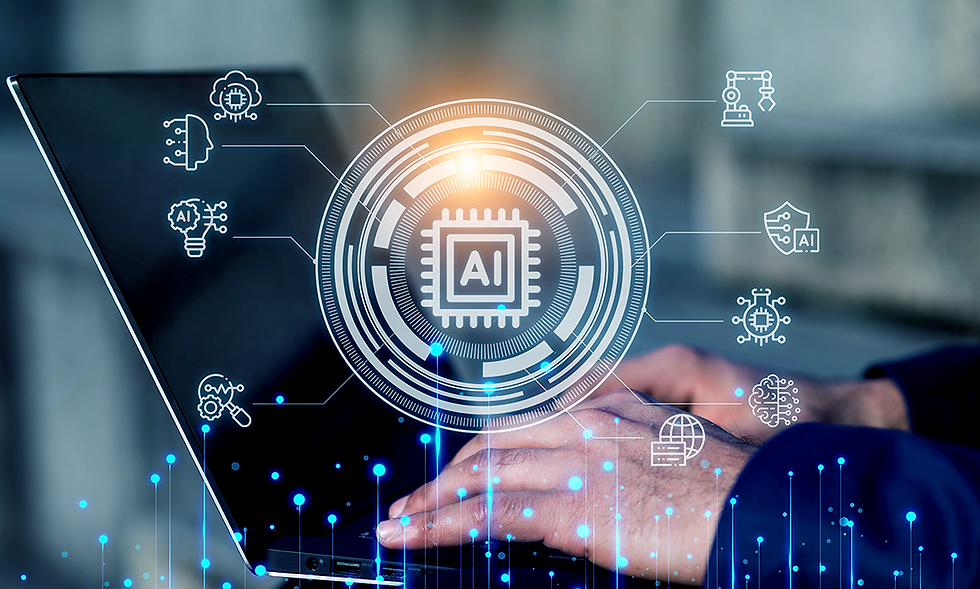Mythbusters: Let’s talk about AI
- Passio Consulting
- 5 de ago. de 2021
- 4 min de leitura
Atualizado: 3 de jul.
“Artificial intelligence is the future”, “Artificial intelligence is science fiction”, Artificial intelligence is already here and part of our everyday lives.
Artificial Intelligence (AI) is one of the hot topics of recent years, a buzzing technology in the market. The scope of AI is beyond our thinking, and it will bring more innovations to the table and will open a new door of opportunities. And naturally, a lot of superficial knowledge has found its way into the press and the minds of the general public.
While AI, at first sight, might seem complicated, many of its perceptions are based on myths. So let’s uncover some of those myths.
Artificial Intelligence, Machine Learning, and Deep Learning are all the sameNo, these three are not the same.
AI solves a task that usually requires human intelligence. Most AI work involves ML because intelligent behaviour requires considerable knowledge.ML solves a specific AI task by learning from data, making it a strict subset of AI.DL solves an ML problem by using AI cognitive systems, neural networks and algorithms.
AI systems are expensive
The general idea is to associate AI with large investments in equipment and a big team of data specialists, but it is not entirely necessary! Some AI applications indeed need a team specialised in programming languages, but AI is also accessible to companies through tools with a smaller footprint and that serve business objectives.
AI can create information from any data source
“If I find the right algorithm, AI will take care of everything”, that is not true. Data is a fundamental element in AI, but not even the most powerful artificial intelligence algorithm can create knowledge when its raw material is incorrect data and without quality. If you want to take advantage of an AI system, rather than loading it with any kind of data, which affects its performance, the important thing is to provide it with high-quality data that is aligned with the business objectives. There is no “magic”; systems that rely on incorrect data provide wrong and poor-quality information. Most AI experts say that most of the work in AI is not glamorous, because it is often about cleansing and representing data the right way, figuring out how to structure problems and fine-tuning meta parameters that are important to drive results. If applied properly, AI can certainly help deliver more value to companies, but it is not a magic potion that can automate strategies.
AI cognitive systems are like the human brain
AI cognitive systems attempt to simulate human thinking by addressing problems that normally require human interpretation and judgment. These systems are complex and include machine learning, deep learning and neural systems. However, these AI systems are still far from being able to extend their learning to new problems. A good AI system is trained on the data provided to it, and the human hand is still needed to select the data, define the scenarios and use cases in which the system will operate. Cognitive systems cannot define new scenarios in which they can operate successfully, and at this point, it is still difficult to predict whether this will ever be possible. They do not come close to the performance of the human brain. Especially when it comes to efficiency, our brains are light-years away from anything human-made.
AI learns from itself, and robots will replace humans, just like The Terminator
Many people think that AI is like in some sci-fi movies, that it will automatically become better and better. In most ML systems in use today, the system has been trained on historical data, that is, it has shown many past examples and derived a general understanding from them. When it runs in production, it uses this knowledge to judge new observations it has never seen before. Ideally, if you can collect feedback, you can eventually retrain the model to improve its early errors. However, in most cases, this will not happen automatically and instantly but will require engineers and some additional adjustments to be effective. Machines are indeed playing a key role in automating tasks and making processes more efficient in many organisations. However, they do not replace humans when it comes to tasks involving creativity or emotional intelligence, for example.AI is particularly relevant in eliminating repetitive work and data verification, which is now done automatically, allowing humans to engage in other, more critical and decision-oriented tasks. So there will certainly be a role transition, not a replacement. AI will help us get more done, deliver more value to our customers and contribute more to our companies.
Technological evolution is something inevitable, and AI systems are revolutionising sectors such as public administration, banking, healthcare and retail. While AI may be viewed with some suspicion, organisations must understand that humans and machines will be two important pillars for the future of business.
Guess everyone has already been a victim of believing in some of these myths. For hot topics like AI, it is always a good idea to talk less about fiction and more about science for a change.



